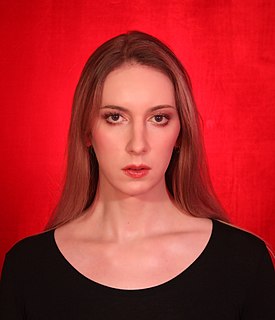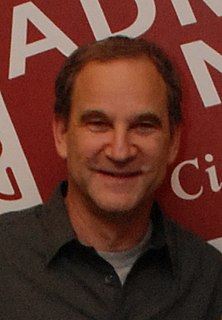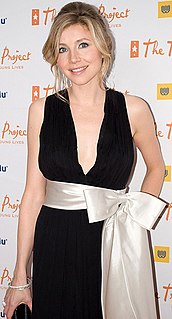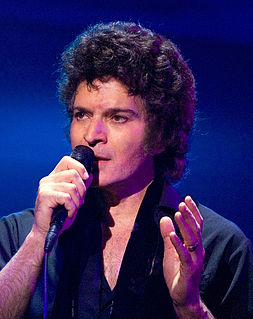A Quote by Gabby Barrett
I completely understand why labels would be a little bit hesitant to sign somebody coming off of a television show, in their first glance.
Quote Topics
Related Quotes
Even when I detach, I care. You can be separate from a thing and still care about it. If I wanted to detach completely, I would move my body away. I would stop the conversation midsentence. I would leave the bed. Instead, I hover over it for a second. I glance off in another direction. But I always glance back at you.
It's interesting: I went 25 years without watching a single television show. I was one of those people, because I was so inside how a television show was made, if I would turn on somebody else's show, I would sit there and analyze it, like, 'Oh, so they had four hours in this location and had to get out and the number of set-ups, etc.'
Mathematics is really an art, not a science. You could say science also is an art. So I would say the difference is something you can't really describe - you can only recognize. You hear somebody playing the violin, and it was Fritz Kreisler or it was somebody else, and you can tell the difference. It is so in almost every art. We just don't understand why it is that there are just a few people who are just completely off the scale and the rest of them are just mediocre. And we don't know why. But I say it's certainly true of mathematics.
Every time you show something to somebody they're going in one direction, when they see that thing you did they're going to go off track - maybe towards a direction that you think is more important. They'll be more discerning, they'll probably see things a little bit more profoundly, they'll spend more time trying to understand what's in front of them.
Those who are accustomed to judge by feeling do not understand the process of reasoning, because they want to comprehend at a glance and are not used to seeking for first principles. Those, on the other hand, who are accustomed to reason from first principles do not understand matters of feeling at all, because they look for first principles and are unable to comprehend at a glance.
A sign, or representamen, is something which stands to somebody for something in some respect or capacity. It addresses somebody,that is, creates in the mind of that person an equivalent sign, or perhaps a more developed sign. That sign which it creates I call the interpretant of the first sign. The sign stands for something, its object. It stands for that object, not in all respects, but in reference to a sort of idea, which I have sometimes called the ground of the representamen.
If you're watching a film on your television, is it no longer a film because you're not watching it in a theatre? If you watch a TV show on your iPad, is it no longer a TV show? The device and the length are irrelevant; the labels are useless, except perhaps to agents and managers and lawyers, who use these labels to conduct business deals.
My first job was a show called The Others. I had, like, three lines. Julianne Nicholson was in it, and Gabriel [Macht]. I remember Gabriel wasn't there the day I was, but he sent a note, because he went to Carnegie Mellon as well, so we knew each other a little bit through that, and he was so sweet and generous. It was meant to be a recurring role that would evolve on the show, but the show only lasted a little while and I ended up only doing that one episode.




































